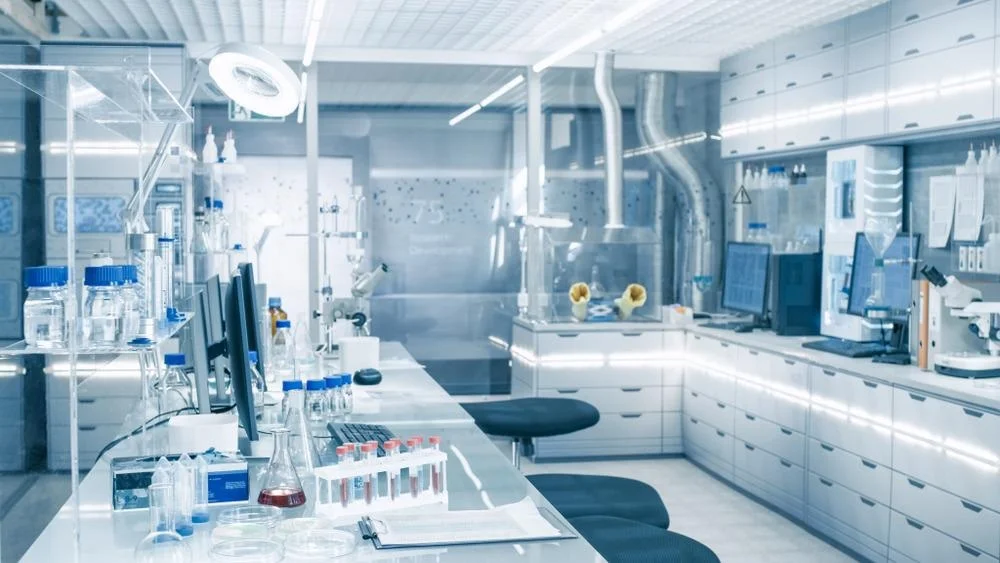Cosmetic Cream Organic Residue Profiling
The process of cosmetic cream organic residue profiling is essential in ensuring the safety and quality of cosmetic products. This service involves the comprehensive analysis of organic residues present within cosmetic creams to identify potential allergens, contaminants, and other harmful substances. It plays a crucial role in the development, production, and quality control processes for cosmetics.
The identification and quantification of organic compounds in cosmetic creams are critical steps that help manufacturers adhere to strict regulatory standards. Regulatory bodies such as the European Union (EU) and the Food and Drug Administration (FDA) require rigorous testing to ensure that products do not contain harmful residues or impurities that could cause adverse reactions.
Organic residues can originate from various sources including raw materials, processing aids, packaging materials, and even manufacturing environments. These residues must be monitored and controlled throughout the production process to maintain product integrity and consumer safety. The use of advanced analytical techniques allows for precise detection and quantification of these compounds at extremely low concentrations.
The primary goal of this service is not only compliance but also innovation. By understanding the organic composition of cosmetic creams, manufacturers can optimize their formulations, enhance product performance, and stay ahead of regulatory changes. This proficiency in organic residue profiling enables companies to adapt quickly to new standards and trends while maintaining a competitive edge.
For quality managers and R&D engineers, this service provides invaluable insights into the safety profile of their products. It helps in identifying potential risks early in the development stage, thereby reducing the likelihood of costly recalls or product rejections at later stages. Compliance officers can leverage these results to ensure that all processes comply with relevant regulations.
Manufacturers who invest in this service gain a significant advantage by gaining deeper understanding into their supply chain and production processes. This knowledge allows them to make informed decisions about raw materials, processing methods, and packaging materials used in the manufacturing of cosmetic creams. Additionally, it ensures that products meet both local and international standards, enhancing brand reputation and consumer trust.
Understanding the organic residue profile is also beneficial for procurement teams as they can evaluate suppliers based on their adherence to stringent quality control measures. By partnering with suppliers who demonstrate consistent compliance through thorough testing, brands can ensure reliable supply chains and high-quality products consistently delivered across different markets.
Eurolab Advantages
EuroLab, a renowned laboratory, offers unparalleled expertise in cosmetic cream organic residue profiling. Here are some key advantages:
- State-of-the-art facilities equipped with cutting-edge technology.
- Experienced and certified analysts who stay updated on the latest regulatory changes.
- Dedicated customer support teams available to assist at every step of the process.
Our commitment to excellence ensures that you receive accurate, reliable data which is crucial for maintaining high standards in your cosmetic products.
Quality and Reliability Assurance
- We adhere strictly to ISO/IEC 17025:2017 accreditation ensuring our methods are robust.
- All analysts follow rigorous training programs and continuous professional development.
To maintain the highest level of quality, we implement stringent Quality Management Systems (QMS). These systems ensure that every aspect of our work—from sample receipt to final report issuance—is conducted with precision and care. Our robust QMS includes detailed protocols for handling samples, executing tests under controlled conditions, and interpreting results accurately.
Our reliability is further enhanced by regular internal audits and external validations performed by independent bodies. This continuous monitoring ensures that we consistently meet or exceed global standards set forth by regulatory authorities like the EU Cosmetics Regulation (EC) No. 1223/2009.
Use Cases and Application Examples
| Use Case | Description |
|---|---|
| Development of New Formulations | Detecting residual solvents, preservatives, and other additives in early stages. |
| Risk Assessment for Existing Products | Evaluating the safety profile of current products before market release or post-release monitoring. |
| Supplier Audits | Assessing supplier compliance by verifying that they meet strict organic residue limits. |
| Compliance with Regulatory Requirements | Ensuring ongoing adherence to international and local regulations regarding cosmetic safety. |
- Development of New Formulations: Detecting residual solvents, preservatives, and other additives during the early stages ensures that new products are safe for consumers without compromising effectiveness.
- Risk Assessment for Existing Products: Evaluating the safety profile of current products before market release or post-release monitoring helps identify potential risks early on.
- Supplier Audits: Assessing supplier compliance by verifying that they meet strict organic residue limits guarantees a reliable supply chain.





